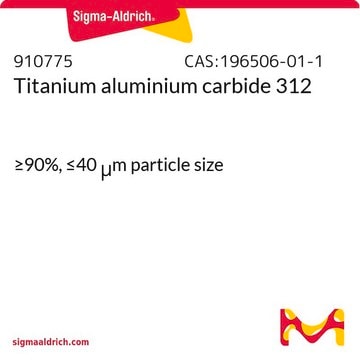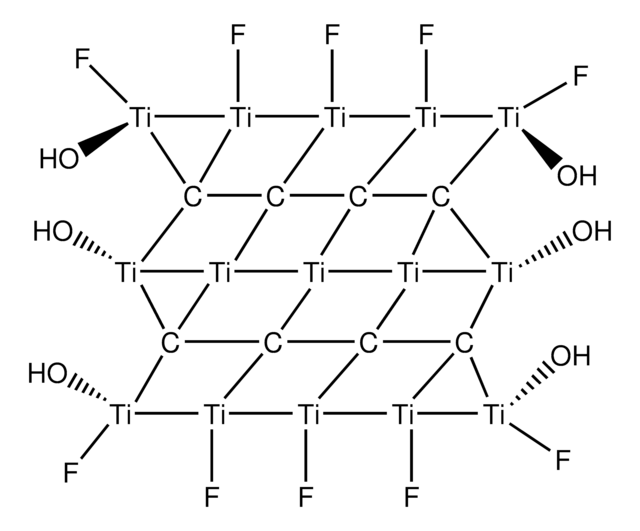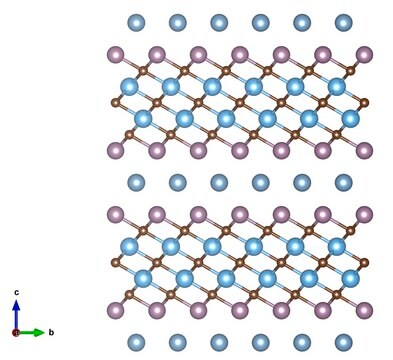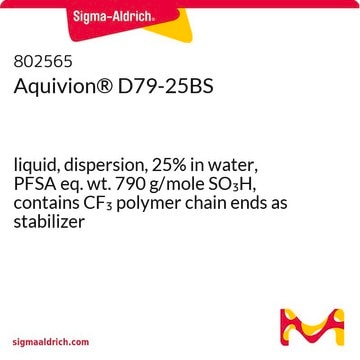910821
Titanium aluminium carbide 211
MAX Phase, ≥80%, ≤100 μm particle size
Synonym(e):
MAX Phase 211, Ti2AlC
About This Item
Empfohlene Produkte
Assay
≥80%
Form
powder
Farbe
dark gray
Partikelgröße
≤100 μm
Suchen Sie nach ähnlichen Produkten? Aufrufen Leitfaden zum Produktvergleich
Verwandte Kategorien
Allgemeine Beschreibung
Anwendung
Ti2AlC MAX phase exhibits high-temperature stability, thermal shock resistance, damage tolerance, crack-healing capability, good machinability, and exceptional oxidation resistance (immune to thermal cycling), and was widely used for high-temperature applications such as high-temperature heating elements, gas burner nozzles and industrial die inserts.
MAX phases are important precursors for synthesizing MXene, a highly conductive 2-dimentional nanomaterial. MXenes are produced by selective etching of the A element from the MAX phases. It combine the metallic conductivity of transition metal carbides with the hydrophilic nature of their hydroxyl or oxygen terminated surfaces. Ti2AlC MAX phase is one of the most used MAX phase for MXene (Ti2CTx).
Sonstige Hinweise
Lagerklassenschlüssel
13 - Non Combustible Solids
WGK
WGK 3
Analysenzertifikate (COA)
Suchen Sie nach Analysenzertifikate (COA), indem Sie die Lot-/Chargennummer des Produkts eingeben. Lot- und Chargennummern sind auf dem Produktetikett hinter den Wörtern ‘Lot’ oder ‘Batch’ (Lot oder Charge) zu finden.
Besitzen Sie dieses Produkt bereits?
In der Dokumentenbibliothek finden Sie die Dokumentation zu den Produkten, die Sie kürzlich erworben haben.
Artikel
Optimizing the synthesis of high-quality 2D MXene flakes for 3D ink printing is essential to such technological developments as printable and flexible electronics.
Advanced technologies for energy conversion and storage aim to improve performance and reduce environmental impact.
Professor Gogotsi and Dr. Shuck introduce MXenes: a promising family of two-dimensional materials with a unique combination of high conductivity, hydrophilicity, and extensive tunability.
Review on 1D vdWHs: Discusses materials, synthesis, optoelectronic applications, challenges, and future perspectives for 1D vdWH-based devices.
Unser Team von Wissenschaftlern verfügt über Erfahrung in allen Forschungsbereichen einschließlich Life Science, Materialwissenschaften, chemischer Synthese, Chromatographie, Analytik und vielen mehr..
Setzen Sie sich mit dem technischen Dienst in Verbindung.





